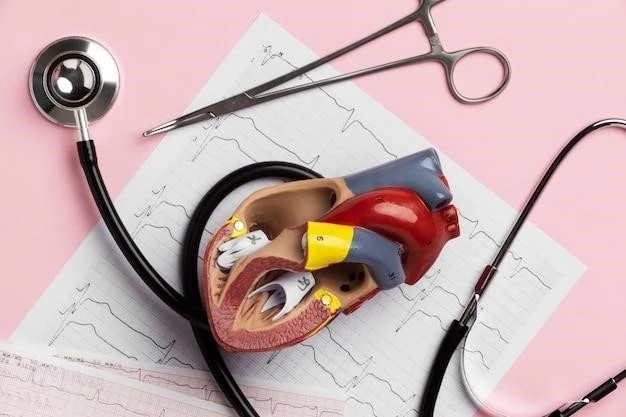Overview of Birdshot Chorioretinopathy
Explore the causes behind Birdshot Chorioretinopathy to better understand the condition and its development.
What is Birdshot Chorioretinopathy?
Birdshot Chorioretinopathy is a rare autoimmune condition that affects the eyes‚ causing inflammation in the retina and choroid. The exact cause is unknown‚ but it is believed to be related to an abnormal immune response. This condition typically develops in individuals between 40 and 60 years of age‚ more commonly in those with specific genetic markers. Understanding the nature of Birdshot Chorioretinopathy is crucial in managing the symptoms and seeking appropriate treatment.
Causes of Birdshot Chorioretinopathy
The exact causes of Birdshot Chorioretinopathy are not fully understood‚ but it is believed to be an autoimmune disorder where the body’s immune system mistakenly attacks healthy cells in the eyes. Genetic factors may also play a role‚ as certain genetic markers have been associated with an increased risk of developing this condition. Environmental factors and immune system dysfunction are also thought to contribute to the onset of Birdshot Chorioretinopathy. It is essential to work closely with healthcare providers to manage the condition effectively and reduce the impact on vision.
Symptoms and Diagnosis
Learn about common symptoms and the diagnostic process for Birdshot Chorioretinopathy.
Common Symptoms
The symptoms of Birdshot Chorioretinopathy can include blurred vision‚ floaters‚ night blindness‚ and vision disturbances. Individuals may also experience eye pain‚ light sensitivity‚ and a decrease in visual acuity. It is important to promptly report any changes in vision to an eye care specialist for a comprehensive evaluation and timely diagnosis. Early detection and management of symptoms can help preserve vision and prevent potential complications associated with Birdshot Chorioretinopathy.
Diagnosis Process
Diagnosing Birdshot Chorioretinopathy involves a comprehensive eye examination‚ including visual acuity tests‚ retinal imaging‚ and specialized tests to assess the extent of inflammation in the eye. Your eye care provider may also perform a fluorescein angiography or optical coherence tomography to aid in diagnosis. In some cases‚ a biopsy of the eye tissue may be necessary for confirmation. It is crucial to work closely with an ophthalmologist experienced in managing uveitis to ensure an accurate diagnosis and appropriate treatment plan tailored to your specific needs.
Treatment Options
Discover the various medications and treatment approaches available for managing Birdshot Chorioretinopathy.
Medications
Medications for Birdshot Chorioretinopathy may include corticosteroids to reduce inflammation‚ immunosuppressants to suppress the immune response‚ and biologics to target specific immune pathways. These medications aim to control the inflammation in the eyes and prevent further damage to the retina and choroid. It is essential to work closely with your healthcare team to monitor medication effectiveness‚ manage potential side effects‚ and adjust treatment as needed. Regular follow-up appointments are crucial to assess response to treatment and ensure optimal eye health.
Other Treatment Approaches
Aside from medications‚ other treatment approaches for Birdshot Chorioretinopathy may include laser therapy to target abnormal blood vessels or photodynamic therapy to reduce inflammation. In some cases‚ surgical interventions like vitrectomy may be considered to address complications such as retinal detachment. It is important to discuss all available treatment options with your ophthalmologist to determine the most suitable approach based on your individual condition and overall eye health goals. Regular monitoring and adherence to treatment plans are vital for effectively managing Birdshot Chorioretinopathy.

Management of Flares
Explore effective strategies for recognizing and managing Birdshot Chorioretinopathy flares.
Recognizing Flare Symptoms
Flare symptoms of Birdshot Chorioretinopathy may include increased eye redness‚ pain‚ sudden vision changes‚ and light sensitivity. You may also experience more floaters or blurry vision during a flare-up. It is crucial to promptly report any new or worsening symptoms to your healthcare provider‚ as early intervention can help manage flares and prevent potential vision loss. Keeping a symptom journal and attending regular eye exams can aid in tracking flare patterns and optimizing treatment strategies for better eye health outcomes.
Flare Management Strategies
When managing flares of Birdshot Chorioretinopathy‚ treatment may involve adjusting medication dosages‚ adding additional anti-inflammatory medications‚ or using corticosteroid injections to reduce inflammation quickly. Your healthcare provider may recommend close monitoring during flare-ups to assess treatment effectiveness and make necessary changes. Additionally‚ lifestyle modifications such as reducing stress‚ getting adequate rest‚ and avoiding triggers like sun exposure can help minimize flare frequency and intensity. Collaborating with your healthcare team and following a personalized flare management plan can help you navigate Birdshot Chorioretinopathy challenges more effectively.
Research and Advances
Stay informed about the latest research and promising treatment possibilities for Birdshot Chorioretinopathy.
Current Research
Ongoing research for Birdshot Chorioretinopathy focuses on identifying new therapeutic targets‚ enhancing diagnostic tools‚ and understanding the role of genetics in disease development. Clinical trials are exploring novel treatment approaches‚ including biologics and gene therapies‚ aimed at improving outcomes and quality of life for individuals with this condition. Staying updated on current research findings can empower patients and healthcare providers to make informed decisions about treatment options and participate in cutting-edge advancements in Birdshot Chorioretinopathy management.
Future Treatment Possibilities
Future treatment possibilities for Birdshot Chorioretinopathy may involve personalized medicine approaches‚ targeted therapies based on individual genetic profiles‚ and innovative interventions to modulate the immune response more effectively. Advancements in regenerative medicine and nanotechnology hold promise for developing new treatment modalities that could potentially halt disease progression and restore vision function. Staying hopeful and engaged with research developments can pave the way for exciting breakthroughs in the treatment landscape of Birdshot Chorioretinopathy.
Living with Birdshot Chorioretinopathy
Discover effective coping strategies for managing daily life with Birdshot Chorioretinopathy.
Coping Strategies
Coping with Birdshot Chorioretinopathy involves maintaining open communication with your healthcare team‚ practicing stress-reduction techniques‚ and seeking support from loved ones or online communities. Adapting daily routines and optimizing lighting conditions at home can enhance visual comfort. Utilizing assistive devices and implementing vision-friendly strategies can help navigate challenges related to reduced vision. Prioritizing self-care‚ staying informed about the condition‚ and fostering a positive mindset are key elements in effectively coping with Birdshot Chorioretinopathy.
Impact on Vision
Learn about how Birdshot Chorioretinopathy can affect your vision and ways to manage visual changes.
Understanding Vision Changes
With Birdshot Chorioretinopathy‚ vision changes such as blurred vision‚ blind spots‚ and decreased night vision may occur due to inflammation and damage to the retina. Understanding these changes‚ attending regular eye exams‚ and promptly reporting any new symptoms are vital in preserving vision. Implementing proper lighting‚ using magnifiers‚ and seeking low-vision aids can help adapt to vision changes and maintain independence. Collaborating closely with eye care specialists can facilitate the optimal management of Birdshot Chorioretinopathy-related vision issues.
Support Resources
Discover valuable support groups and organizations offering assistance to individuals with Birdshot Chorioretinopathy.
Support Groups and Organizations
Join support groups and organizations dedicated to Birdshot Chorioretinopathy to connect with others facing similar challenges‚ access valuable resources‚ and receive emotional support. These groups often provide educational materials‚ online forums‚ and opportunities to participate in advocacy efforts or fundraising activities. Engaging with supportive communities can help individuals and their loved ones navigate the disease journey‚ share experiences‚ and foster a sense of belonging. Explore these supportive networks to enhance your coping strategies and overall well-being while managing Birdshot Chorioretinopathy.
